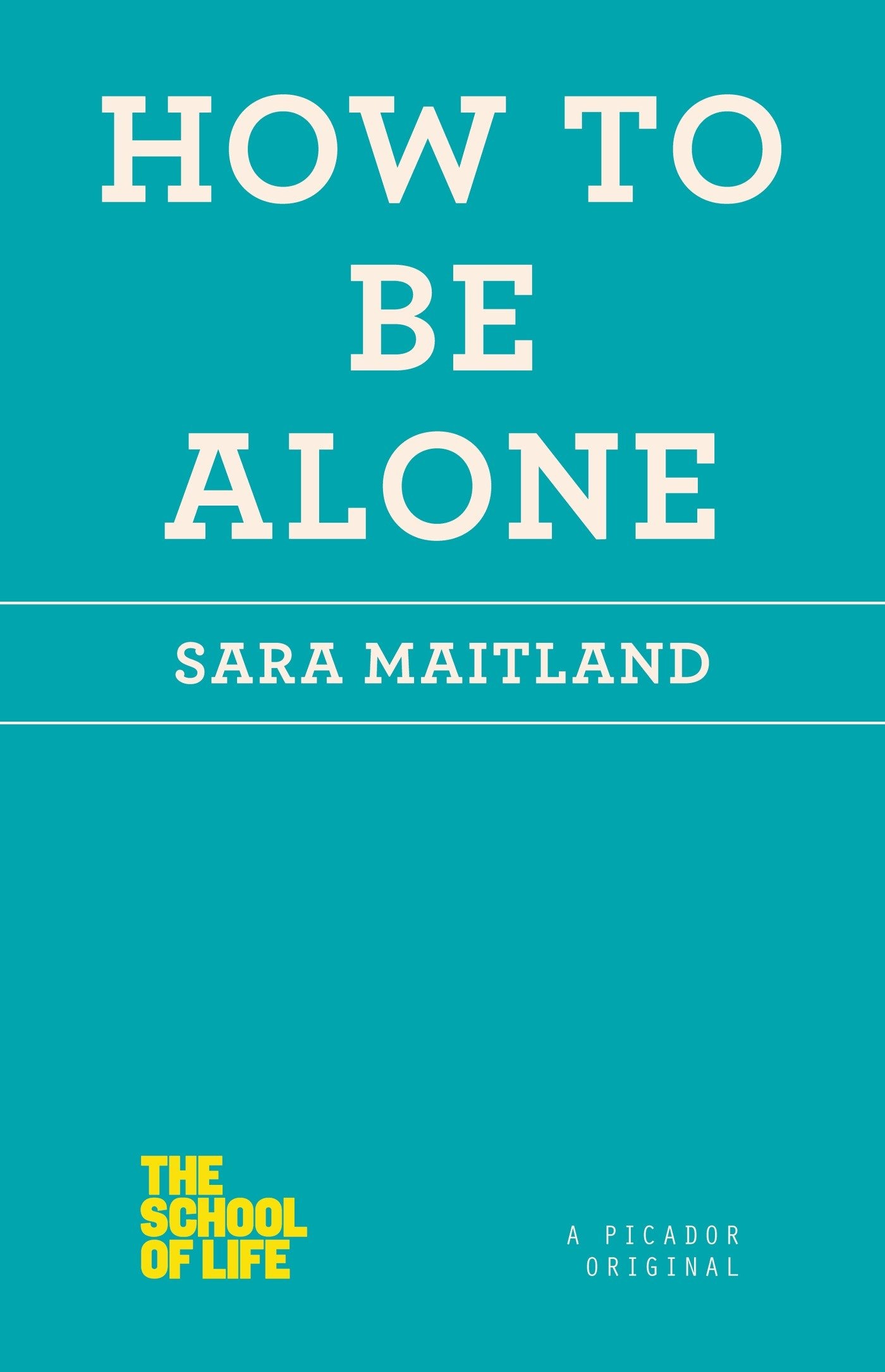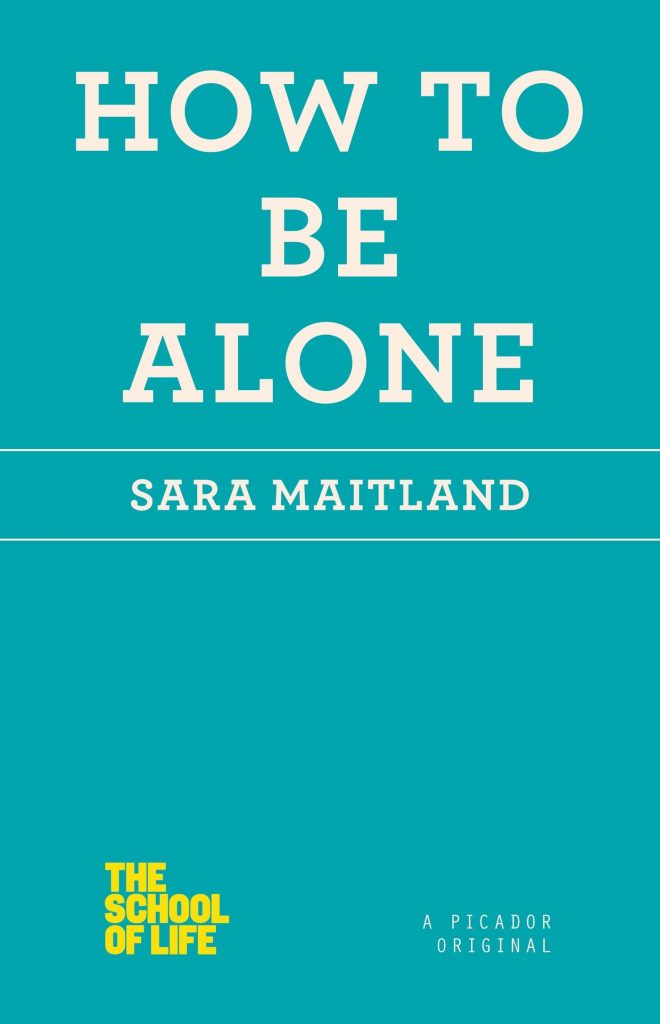How to Be Alone Summary

7 min read ⌚
 The School of Life Series
The School of Life Series
During the past few decades, the world has irretrievably changed. At no time in history, humans have been better connected than today.
However, this has come with a downside. Namely, it’s almost impossible nowadays to be on your own; even though, it is one of the most important favors you can do to yourself.
That’s why you better listen to Sara Maitland as she tries to teach you “How to Be Alone.”
Who Should Read “How to Be Alone”? And Why?
If you can juggle well with your schedule – i.e., you repeatedly complete all your tasks on time and are still able to find some time to be alone – then you may find the wisdom this book offers a bit redundant.
However, since such people sound mythical in today’s world, we guess that this book should find a very broad target audience.
Because even if you don’t like to be alone, it’s essential to find out why that is not such a good idea. And If you do want to have some time for yourself, but you are incapable of finding it, then Sara Maitland’s manual is a good place to start as any other.
About Sara Maitland
 Sara Maitland is a British writer, celebrated both as a feminist author and an award-winning religious fantasy novelist. She considers feminism, socialism, Christianity, and friendship the bedrocks of her life.
Sara Maitland is a British writer, celebrated both as a feminist author and an award-winning religious fantasy novelist. She considers feminism, socialism, Christianity, and friendship the bedrocks of her life.
Maitland debuted in 1978 with “Daughter of Jerusalem” which won her praise from the critics and the Somerset Maugham Award the following year. Since then, she has gone on to write six more novels, seven short story collections, and eleven non-fiction books.
In addition, she has also worked with Steven Spielberg on the 2001 film “A. I. Artificial Intelligence,” tasked with giving the original story “a feminist fairy-tale focus.”
Read more at http://www.saramaitland.com/
“How to Be Alone Summary”
We have never been more connected than now. And chances are – unless we devise some form of teleportation or planes flying at warp speed – not many things can happen to make us feel more connected in the future.
And that is wonderful!
Or, at least, it would have been if we hadn’t found a way to subjugate ourselves to connectivity! Come to think of it, as humans, we are exceptionally talented when it comes to transforming great inventions into time-wasters, addictions or nuclear bombs.
Remember educational Heinrich Böll’s short story about the relaxed fisherman and the photographer/entrepreneur we retold you here?
Well, Sara Maitland’s book is about that.
About how to stop feeling anxious when your mobile is in the next room. And about how to go on long walks or to the cinema with no company but yourself – and still feel happy.
You know, about – “How to Be Alone.”
Because solitude is not bad. In fact, if you want to become more self-aware or boost your creativity, solitude is essential. A century ago, Virginia Woolf begged men to give women a room of their own and a key so that they are able to write.
And they will thank you with masterpieces.
You know what happened?
9 out of the 10 bestselling authors last year were women.
So, solitude works.
But, why does it have such a bad reputation?
Why are you predisposed to think of solitary individuals as eccentrics and oddballs? Especially today, when we value individualism and uniqueness above all?
Philip Koch, in his book “Solitude,” claims that we got the word “predisposed” right in the previous paragraph. Like so many other things, disliking lonely people has a lot to do with evolution.
We got here because we decided not to be alone. Lonely people didn’t stand a chance in a thousand-year-long history filled with wars, wild animals, and natural catastrophes.
But, the past is past, and the present is not so bad.
And being alone – for no matter how long – will not make you less of a human than the other people. In fact, it may make you more.
Take, for example, Greta Garbo, who retired at the age of 35, at the height of her stardom, just so that she can experience solitude. And Henry David Thoreau went to the woods “to live deep and suck out all the marrow of life” for two years, two weeks and two days back in the 1850s.
Even better, take Anthony the Great, the father of monasticism, who lived alone for twenty years in the wilderness and didn’t go mad.
Want a more recent example?
Jetsunma Tenzin Palmo is a British-born Tibetan female monastic who looks much more enlightened than most people you know even though she lived 12 years alone in a remote cave in the Himalayas!
In other words, solitude can’t kill you.
On the contrary – it can make you a much more creative and an infinitely calmer person, an individual more in touch with oneself.
So, what are you waiting for?
Start spending some time with yourself!
Take few long walks in nature and listen to the birds chirping while the cool breeze caresses your cheeks. Expand your solitude gradually, starting with a longer bath and finishing with a solo adventure.
Daydream – first for five minutes and in a year for five hours! Because you did that as a child and because it made you feel wonderful back then.
It will once again.
Trust us.
We’ve tried.
Key Lessons from “How to Be Alone”
1. Solitude Is Underrated
2. Make a Long-Term “Alone Time” Plan
3. Give Your Children the Gift of Solitude
Solitude Is Underrated
The world is nowadays more crowded and connected than ever. And it’s so noisy you can hardly hear yourself think.
So, they teach you that you have to stand out from the crowd. That you are unique and original. You know, that you have to be yourself to be a badass.
Then, how is it that when you see someone doing this alone, you’re instantly suspicious. Strictly speaking, an individual can be an individual only when alone. Otherwise, he’s part of a crowd.
Well, you know what?
Alone people are usually not lonely. On the contrary – they are self-sufficient enough that they don’t fear being alone. Unlike most of the folks around, they can spend hours and hours with themselves because they are interesting people and because, consequently, they are never bored.
When was the last time you felt that?
Make a Long-Term “Alone Time” Plan
If the answer to the above question is “about millions of years ago,” then you have to make an “alone time” plan straight away.
You’re like a heroin addict – you are hooked on phones and people – so, it won’t be easy. You can’t just sever your connections right away. It will make you look strange, and it will not have a positive effect on your health.
But, do it gradually. Take a longer bath. Turn off the notifications. Then your phone for an hour or two. Daydream. Take a solo walk somewhere in your neighborhood. After a while, go on a solo adventure in the mountains.
At a certain point, your solitude will result in something you’ve never experienced before: feeling one with the universe.
Paradoxically, you’ll hardly ever feel that among people.
Give Your Children the Gift of Solitude
Boredom is not such a bad thing when you’re a child. Because it passes quickly. After all, the world is so full of mysteries and wonders, that it’s almost blasphemous to say that you can’t think of anything to do.
So, don’t worry: you don’t have to engage with your children constantly. Supervise them always but leave them alone once in a while in the park or somewhere in nature. We know it sounds scary. It isn’t; it is necessary.
Asked what he would like to say to the young people of his day, possibly the greatest director of all times, Andrey Tarkovsky, sent a message which reverberates to this day. The subtitles are a bit poor, so here’s a better translation:
“I think the only thing I’d like to say is that they should learn to be alone and try to spend as much time as possible by themselves.
I think one of the faults of young people today is that they try to come together around events that are noisy, almost aggressive at times. This desire to be together in order to not feel alone is an unfortunate symptom, in my opinion.
Every person needs to learn from childhood how to spend time with oneself. That doesn’t mean he should be lonely, but that he shouldn’t grow bored with himself because people who grow bored in their own company seem to me in danger, from a self-esteem point of view.”
Like this summary? We’d like to invite you to download our free 12 min app, for more amazing summaries and audiobooks.
“How to Be Alone Quotes”
You are one of those courageous people who want to dare to live; and to do so believe you have to explore the depths of yourself, undistracted and unprotected by social conventions and norms. Share on X Running alone can allow you to hit the mute button on the world... and take full advantage of exercise's stress-busting benefits. Share on X We declare that personal freedom and autonomy is both a right and good, but we think anyone who exercises that freedom autonomously is 'sad, mad or bad.' Or all three at once. Share on X We know that solitude is almost a necessity for creativity and the development of a genuinely and richly autonomous sense of identity. Share on X Remember that it is good for children to be bored sometimes. Children who are not continually provided with stimuli develop more active imaginations, a stronger sense of self-sufficiency and, probably, higher self-esteem. Share on XOur Critical Review
“How to Be Alone” is part of “The School of Life” series of books – which means that you can watch numerous related videos on YouTube, some of which sum up the reasons Sara Maitland offers as concisely and as appealingly as the book itself.
And that may be the only bad thing about this book: it’s too long for its sake. And, moreover, it spends too much time explaining why you should be alone, and too little how you can do it.
However, we feel that many people have forgotten why they should be alone, so even though we think that the title of the book may be wrong, we know that the content is not.


 The School of Life Series
The School of Life Series





